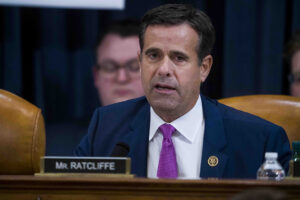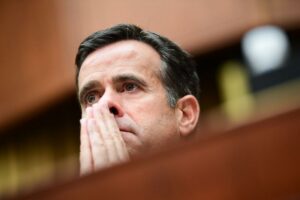Donald John Trump wanted to nominate John Ratcliffe to be director of national intelligence this past summer.
Then questions surfaced about the U.S. representative from East Texas’ credentials. It was alleged that he fudged on ’em. He wasn’t nearly as qualified to lead the spook network as he claimed to be.
Senate Republicans joined their Democratic colleagues in questioning the wisdom of this selection. Ratcliffe withdrew his name.
But wait! Here he is again! Trump has renominated him to be DNI.
What happened? Has he built any additional credibility or credential to be the nation’s leading spy?
No. He hasn’t! All he’s done is defend Donald Trump ferociously during the House impeachment inquiry that resulted in Trump being impeached for abuse of power and obstruction of Congress.
Ratcliffe represents a congressional district that is thought to be as reliably Republican as any in the nation. He is on the ballot this fall. The GOP primary occurs on Super Tuesday next week. He once was a U.S attorney, but his prosecutorial experience is extremely limited, having little to do with matters involving national intelligence.
I am left to wonder what in the world the president is doing with this nutty appointment. He selected a U.S. ambassador to Germany as temporary DNI with zero credibility; he fired Joseph Maguire because the former acting DNI contradicted Trump’s national security assessment.
Now we get another Trump toadie to provide unvarnished intelligence? What the heck is that all about? Trump wouldn’t listen to the unfettered truth if it slapped him in the puss!
I do not feel any safer. Do you?

